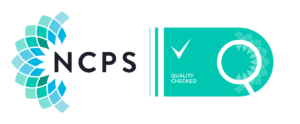Chrysalis Level 4 Diploma in Counselling Skills & Theory (Dip CST.)
Counselling
2 Years
Call us 01278 726 982
Chrysalis Level 4 Diploma in Counselling Skills & Theory (Dip CST.)
Counselling
2 Years


2 Years
King’s Trust Level 4 Diploma in Counselling Skills and Theory (RQF) 603/6872/X
As the second year of a three-year part-time counselling course, Chrysalis' Level 4 Diploma in Counselling Skills & Theory will help you develop all the necessary skills of counselling, begin your journey of self-awareness and personal development, and gain understanding of the major approaches to talking therapies which supports the work of counselling. This level 4 counselling course is designed to deepen your skills and confidence as you progress toward professional qualification.
Our unique training Incorporates a core Pluralistic framework within which you learn that different methods suit different clients and different presenting Issues at different times. Training supports you to learn a range of skills and Insights to best support future clients. This Is a contemporary approach acknowledging the vital contribution played by many in the development of counselling and psychotherapy while drawing on a strong evidence base to support best practice.
SEE THIS DIPLOMA ON THE OFQUAL REGISTER >>
Study Methods: Practical classroom work; Practice Groups; Homework assignments; Reflective Journal; Case Studies; Focus on practical work with no final exam.
*Pricing may vary depending on location.
Download a prospectusFoundations Of Counselling And Theory Part 1: The Psychodynamic Approach
Learning the historic and basic principles of this widely respected approach, starting from the work of Sigmund Freud and his model of the psyche.
Foundations Of Counselling And Theory Part 2: The Humanistic Approach
Concentrating on Carl Rogers' Person Centred Counselling and the work of Abraham Maslow, learning the foundations of all good counselling practice including the Core Conditions, the actualising tendency, the importance of working with the subjective experience of the client, and the process of therapy.
Foundations Of Counselling And Theory Part 3: The Cognitive Behavioural Approach
Learning the work of Aaron Beck and the principles and tools which inform this approach to therapy. Learn bringing structure to sessions and the role played by individual perception and beliefs.
Stress, Anxiety & Self-defeating Behaviours
Gaining understanding about these common presenting issues and how to assist people experiencing them. In addition, learning how to establish and maintain a boundaried professional relationship in order to ethically support those who seek counselling help.
Relationships, Bereavement And Loss
Examining and exploring the role relationships play in individual development and wellbeing, introducing theories of attachment and loss and how to work with grief and loss.
Development, Motivation And Goal Achievement
Exploring the concept of motivational energy and emotions such as anger and frustration. Reflecting on people's social and cultural experience and the importance of understanding diversity and equality.
Understanding Evidence Based Counselling Practice
Gaining understanding of different approaches to research and how studies inform practice. Focusing on evaluating quantitative and qualitative therapy studies and what we can learn from them.
Chrysalis Level 4 Diploma in Counselling Skills & Theory (Dip CST.)
Counselling
2 Years
£159.81
(26 payments)Instalment plans do require a deposit and will be discussed at interview.
£4,783.43
£3,826.75
Hypnotherapy Counselling
3 years
£141.39
(40 payments)Instalment plans do require a deposit and will be discussed at interview.
£6,283.89
£5,026.10
Wherever you are in the country, you’re just around the corner from one of our counselling or hypnotherapy courses.